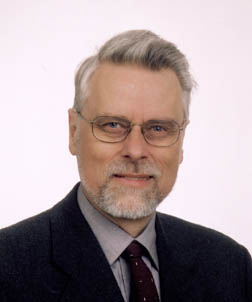
Systems Seminar - ECE
What is the Connection Between Artificial Speech and Modern Mathematics, and How Can This Be Used in System Identification and Robust Control?
Add to Google Calendar

Every 30 ms your mobile telephone computes a solution to the Carathéodory extension problem, a classical mathematical problem that dates back to the beginning of last century. In 1918 Schur presented a complete parameterization of all solutions to this problem, and the one used in speech processing for a "shaping filter" is called the maximum-entropy solution. In theory, one could improve the quality of speech by choosing another solution, but a requirement on the complexity of the shaping filter renders the Schur parameterization useless and completely alters the underlying mathematical problem. We present another approach to shaping speech which provides a paradigm that can also be applied to problems in system identification, robust control, image processing, etc. It allows for smooth tuning to specifications in a class of solutions with bounded complexity. The methodology employed is a combination of nonlinear analysis, geometry and optimization, but the talk will be given on a descriptive and rather nontechnical level.
Anders Lindquist is Zhiyuan Chair Professor at Shanghai Jiao Tong University and an Emeritus Professor at the Royal Institute of Technology (KTH), Stockholm, Sweden. After receiving a PhD from KTH in 1972, he came to the University of Florida as the first postdoctoral fellow of R.E. Kalman in his new Center of Mathematical Systems Theory and then had a full academic career from Assistant to Full Professor in the United States. In 1983 he was appointed to the Chair of Optimization and Systems Theory at KTH, where he also served as the Director of the Center for Industrial and Applied Mathematics. For ten years he was also the Head of the Mathematics Department there.
Lindquist is a Member of the Royal Swedish Academy of Engineering Sciences, a foreign Member of the Chinese Academy of Sciences, a foreign Member of the Russian Academy of Natural Sciences, an Honorary Member the Hungarian Operations Research Society, a Life Fellow of IEEE, a Fellow of SIAM, and a Fellow of IFAC. He is an honorary doctor at the Technion, Israel, and the recipient of the 2009 Reid Prize in Mathematics from SIAM and of the 2003 Axelby Outstanding Paper Award from the IEEE Control System Society. He has recently been named the recipient of the 2020 IEEE Control Systems Award. He is also an Honorary Professor at the China University of Petroleum, Qingdao.
 MENU
MENU 
